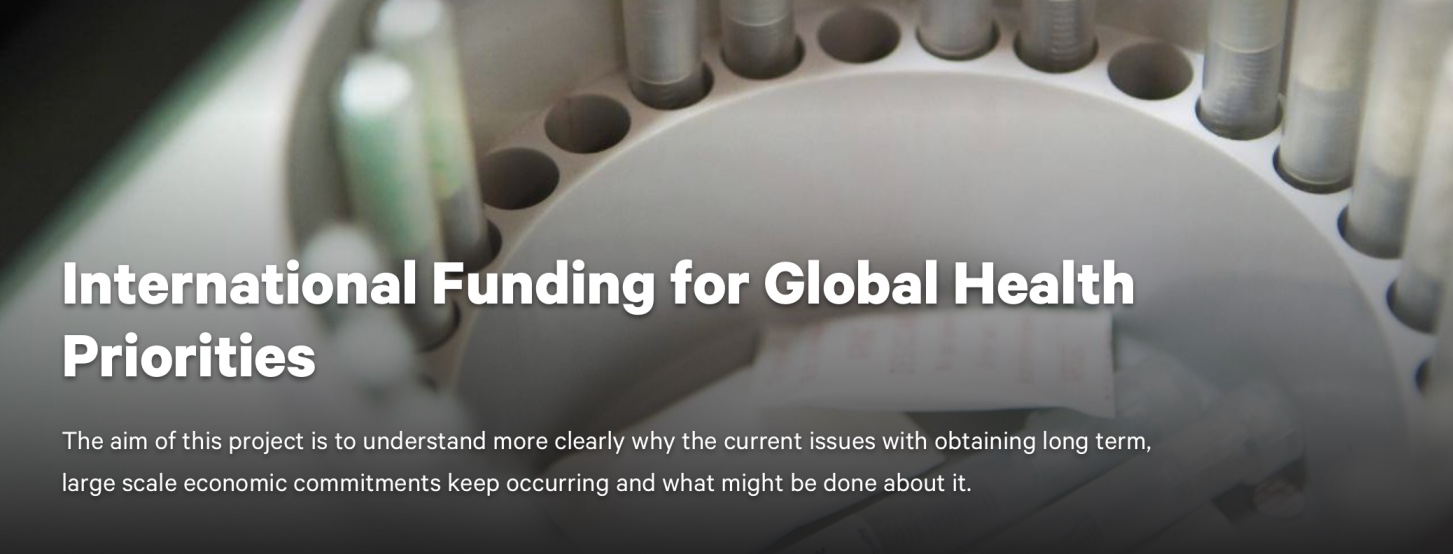United for Global Mental Health
4th Global Mental Health Advocacy Forum: Key Learnings and Take-Home Messages for Mental Health Advocates from the Forum’s Plenary Sessions
Report
05 Feb 2026

The COVID-19 pandemic has demonstrated once again the enormous costs (humanitarian, social and economic) that could be averted by investing in global health public goods such as measures to prevent pandemics, to limit the spread of infectious disease once a pandemic is underway, and measures to slow the spread of antimicrobial resistance (AMR).
Time and again national governments and the international community have failed to respond with funding commitments that are of sufficient scale or duration to meet the identified needs. This is despite the propositions being a ‘no-brainer’ in financial/economic as well as humanitarian terms.
The aim of this project is to understand more clearly why this situation keeps occurring and what might be done about it. The work focuses on the political economy obstacles to funding health interventions which require strong international coordination and international financial support, and where major direct health benefits are achieved by all countries.
The project links to three major policy engagement opportunities; the 2022 joint UK/CEPI replenishment and the G7 and G20 summits, with Chatham House-convened high-level private roundtables and public panel discussions highlighting the key obstacles to sustained funding commitment.
The research findings from in-depth case studies of two issues (AMR and HIV) needing an international response, and which have experienced different levels of political and financial commitment, as well as those from a detailed look at the decision-making processes in fiscal authorities, feeds into a proposed framework for improved decision-making in public international financing for global health priorities.
This is a joint project between Chatham House’s Global Health Programme and Global Economy and Finance Programme.